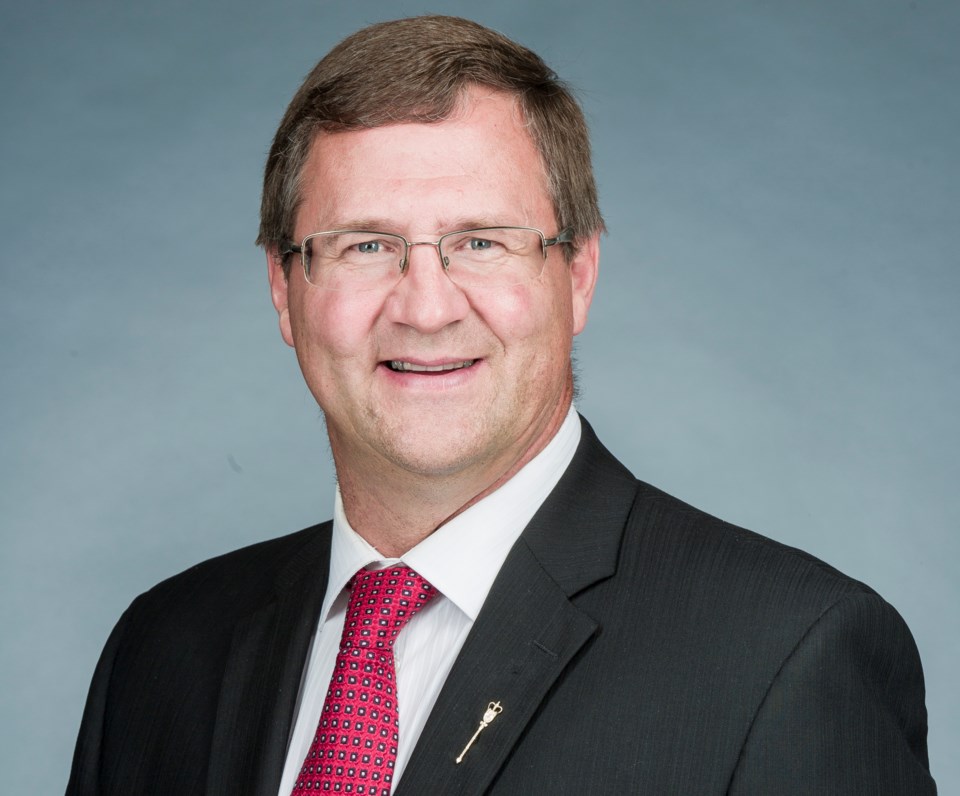Finance minister Travis Toews spoke to the $56.1 billion budget Feb. 27, which includes a $6.8 billion deficit. Over the course of the next three years, the plan is to eliminate that deficit before the next election and see a modest surplus of $700 million by 2023.
“I am pleased to share that we are on track to eliminate the deficit. In fact, our deficit is $1.2 billion lower than we projected in Budget 2019. This means that Alberta taxpayers will pay $35 million less in debt servicing costs,” Toews said during his speech introducing the document.
“Getting to a balanced budget will provide a solid fiscal foundation from which Albertans can confidently face the future and seize its opportunities.”
Athabasca-Barrhead-Westlock MLA Glenn van Dijken says he’s glad to see the government moving forward on a course to balance the budget by 2023, which was one of the things he and other UCP candidates committed to during the last election campaign.
"I believe we're doing that in a way that minimizes any kind of effect it will have on services provided to Albertans as much as possible," van Dijken said after the budget was released.
He said he’s encouraged to see accelerated infrastructure spending, which will assist in creating more wealth in the short term.
"To me, that's a recognition of the need to get our economy moving again, and some of the infrastructure that's necessary to allow that to happen," he said. “I'm happy to see that there was some flexibility within government to move on some of these projects."
The 2020 Capital Plan sees the province putting $772 million into infrastructure projects over the next three years, including roads, schools and health facilities, which is expected to create 3,000 jobs.
"It's needed infrastructure; it's not just infrastructure that is nice to have,” said van Dijken. “I'm glad that we're moving forward on that."
Opposition NDP leader Rachel Notley just sees Albertans paying more, but getting less, she said during a press conference that day.
“This budget offers no hope to the 50,000 Albertans who have lost their jobs since this government began on its misguided path, and in fact aims to push more public sector workers into unemployment. It contains no plan to diversify our economy,” said Notley.
“I am particularly concerned by Jason Kenney attacking seniors’ health through a $72-million cut to the seniors drug benefit program, and his plan to impose income-tested deductibles on them later this year.”
van Dijken recognized constituents have been contacting his office about that decision in particular, as the age demographic in Athabasca-Barrhead-Westlock tends to skew older.
"It was identified that this was a benefit that was not being offered by other provinces. And in order to be in a position of being sustainable for the long term, it was felt that this needed to be addressed," said van Dijken, adding the ministry recognizes the need to focus on delivering as many of the core services as possible while being in line with what's being done in other provinces.
"We don't have the luxury right now of being an outlier in the spending. These are very difficult decisions that are being made, but recognizing that we have to focus every tax dollar to try and get the full value as much as possible."
Notley also pointed out the budget is based on the price of West Texas Intermediate oil reaching $58 per barrel. The price currently sits at $45 per barrel.
van Dijken noted that price can fluctuate rapidly and that it wasn’t very long ago WTI was hovering at $70 per barrel. That said, oil prices are a variable that are completely out of the government’s control, so the government is focused on realistic targets over the long term, without relying on boom-type scenarios.
"What we're currently faced with in the global economy is something that's out of our control, and ... if that long-term projection does not prove to be realistic, then adjustments will be made."
One other thing van Dijken pointed out was finalized in the budget: all 10 provinces have essentially identified that the Fiscal Stabilization Program administered by the federal government "is broken and needs to be addressed."
"We continue to lobby the federal government for a fair deal on the fiscal stabilization payment, and develop programs that would help potentially in putting more people to work with a retroactive payment," said van Dijken.
Not to be confused with the equalization formula, the FSP was designed to provide federal funding to provinces when commodity prices crash. The Alberta government has been calling for an overhaul of the program, it calls outdated, as well as a retroactive payment of $2.4-billion it says it would have received if payments weren’t capped at $60 per capita.
"Our province has been in discussion since we became government to try and address this situation. And the other 10 provinces have all agreed that this is needing fixing," said van Dijken.
The NDP Opposition remains unimpressed.
“At the end of the day, this budget fails on every count,” Notley said. “It doesn’t make life better for Albertans, it doesn’t create jobs, it doesn’t resemble fiscal responsibility. And with all that, it rests on a make-believe framework of economic projections that most people know are not true.”
Both van Dijken and the finance minister say their government is on the right track and they are eager to turn the province’s financial situation around.
“There are signs that in 2020 we will turn a corner and see real economic growth return to the Alberta economy,” said Toews. “We are on track to balance the budget. We are on track to bring investment, and jobs back to Alberta. We are on track to transform service delivery and to protect the most vulnerable.”
With files from Kevin Berger
Chris Zwick, TownandCountryToday.com
Kevin Berger, TownandCountryToday.com


